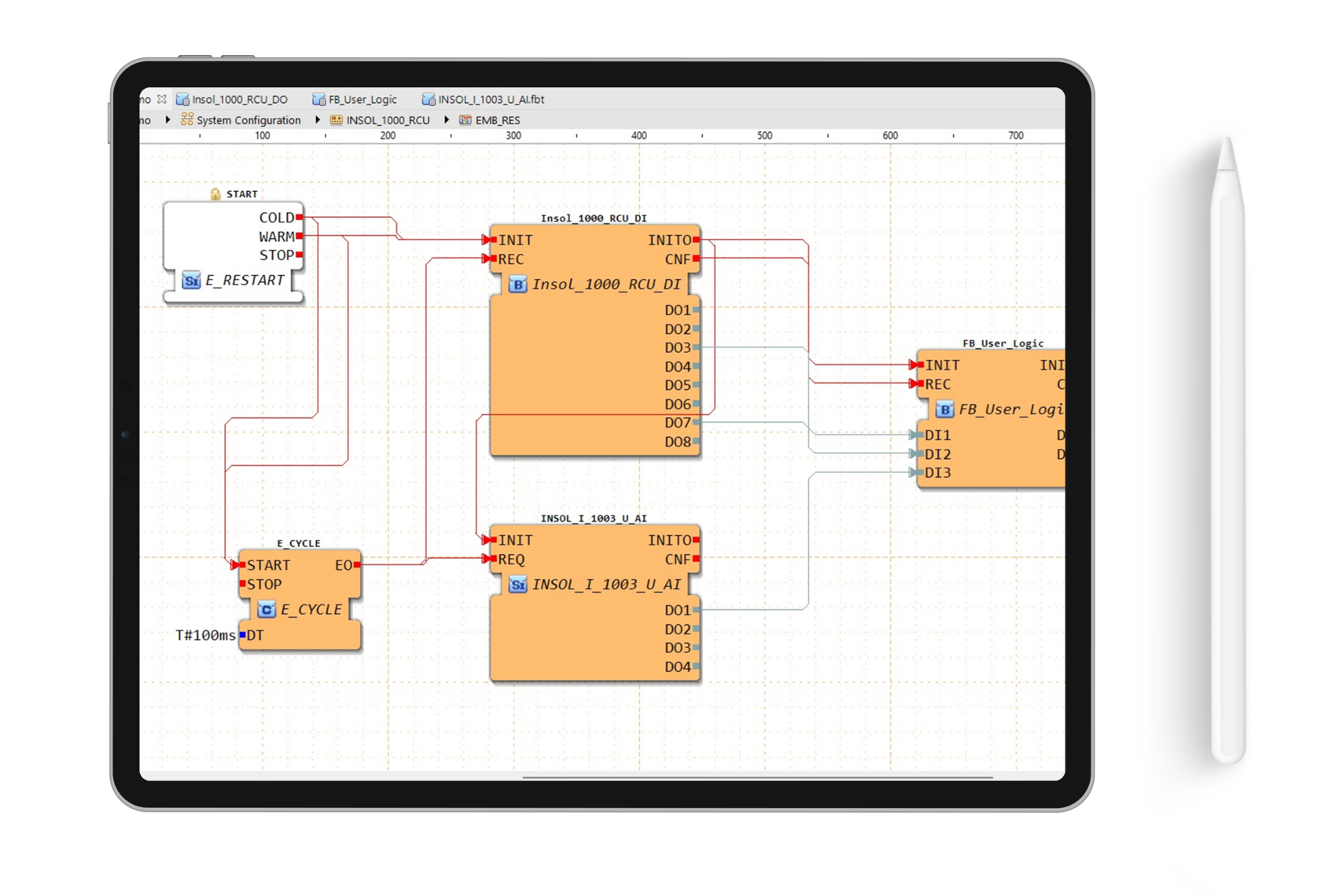INSOL DCS Soft: A Development Environment for Distributed Control Systems Based on IEC 61499
INSOL offers its proprietary software platform for the development of distributed control systems — INSOL DCS Soft. This software is built on the open Eclipse 4diac infrastructure, developed at Johannes Kepler University, Austria, and is fully aligned with the IEC 61499 standard.

INSOL DCS Soft provides a comprehensive set of tools and libraries for creating and editing function blocks that can be used in a wide range of distributed control scenarios. In addition, the software supports simulation and testing of control systems prior to deployment, enabling thorough validation and optimization of system behavior before implementation.

A key feature of INSOL DCS Soft is its preinstallation on the INSOL Node switch and its ability to run via a built-in web interface. This eliminates the need to install additional software or purchase separate workstation licenses, significantly simplifying system configuration and reducing deployment costs.
The 4DIAC_IDE development environment (Java-based) and the 4DIAC_Forte runtime (written in C++).
Development Environment Preparation
We compile 4DIAC_IDE to produce an executable file (.exe). This environment allows users to create function blocks tailored to our hardware, including:
► Input events and data (e.g., equipment signals or combined signal sets)
► Output actions (e.g., actuator triggers or visual notifications on the operator’s screen)
Codebase Generation
Template C files are then automatically generated. These serve as a foundation that developers extend with control logic customized for specific hardware configurations.
Development Environment Preparation
We compile 4DIAC_IDE to produce an executable file (.exe). This environment allows users to create function blocks tailored to our hardware, including:
► Input events and data (e.g., equipment signals or combined signal sets)
► Output actions (e.g., actuator triggers or visual notifications on the operator’s screen)
Codebase Generation
Template C files are then automatically generated. These serve as a foundation that developers extend with control logic customized for specific hardware configurations.
Integration with Hardware
► Developers link function blocks to physical hardware
► Configure sensor signal processing
► Implement control logic for actuators
Build and Deployment
Once configuration is complete, the code is compiled into an executable program and uploaded to the Series 1000 devices. Function blocks created in the IDE become the building blocks for constructing a unified control system.
► Developers link function blocks to physical hardware
► Configure sensor signal processing
► Implement control logic for actuators
Build and Deployment
Once configuration is complete, the code is compiled into an executable program and uploaded to the Series 1000 devices. Function blocks created in the IDE become the building blocks for constructing a unified control system.
Key Advantages
► Accelerated development through reusable templates
► Flexible adaptation to any hardware
► Unified environment for logic design and code generation
► Accelerated development through reusable templates
► Flexible adaptation to any hardware
► Unified environment for logic design and code generation


